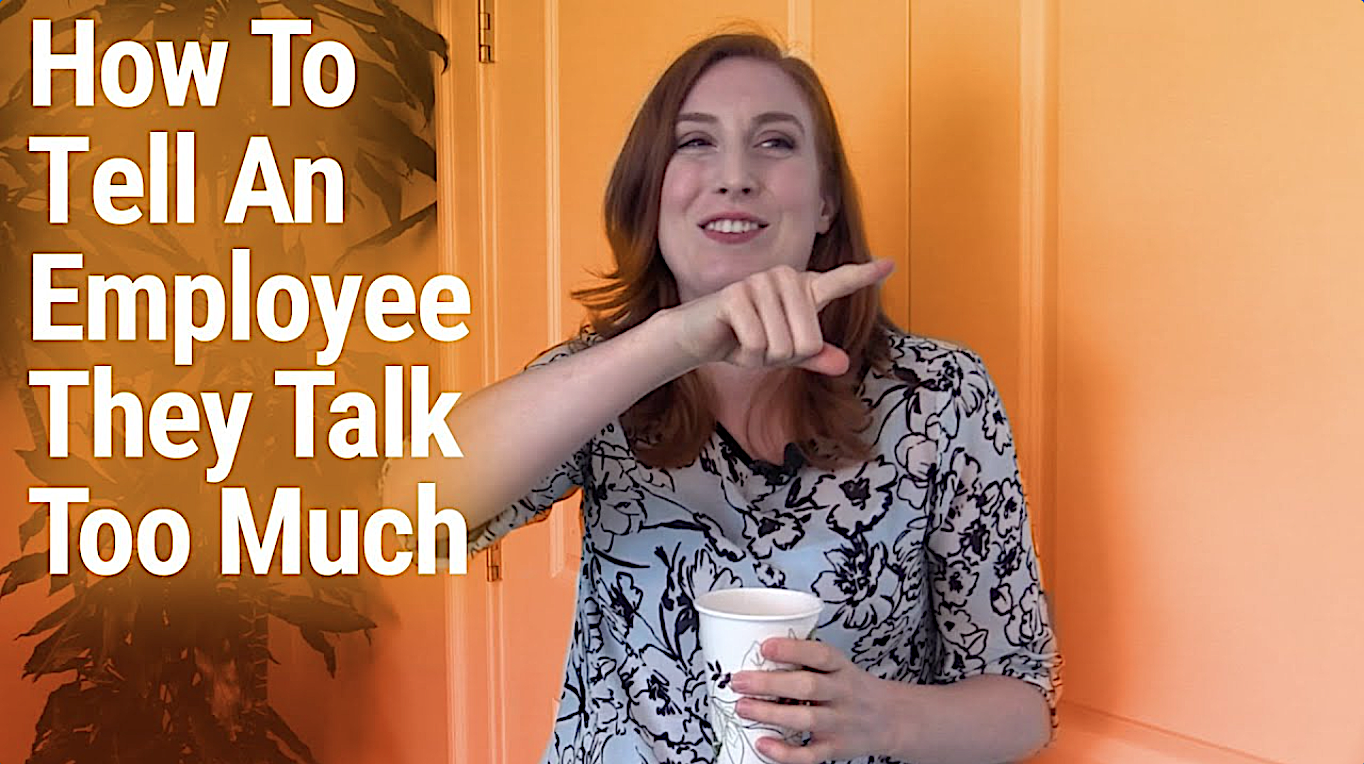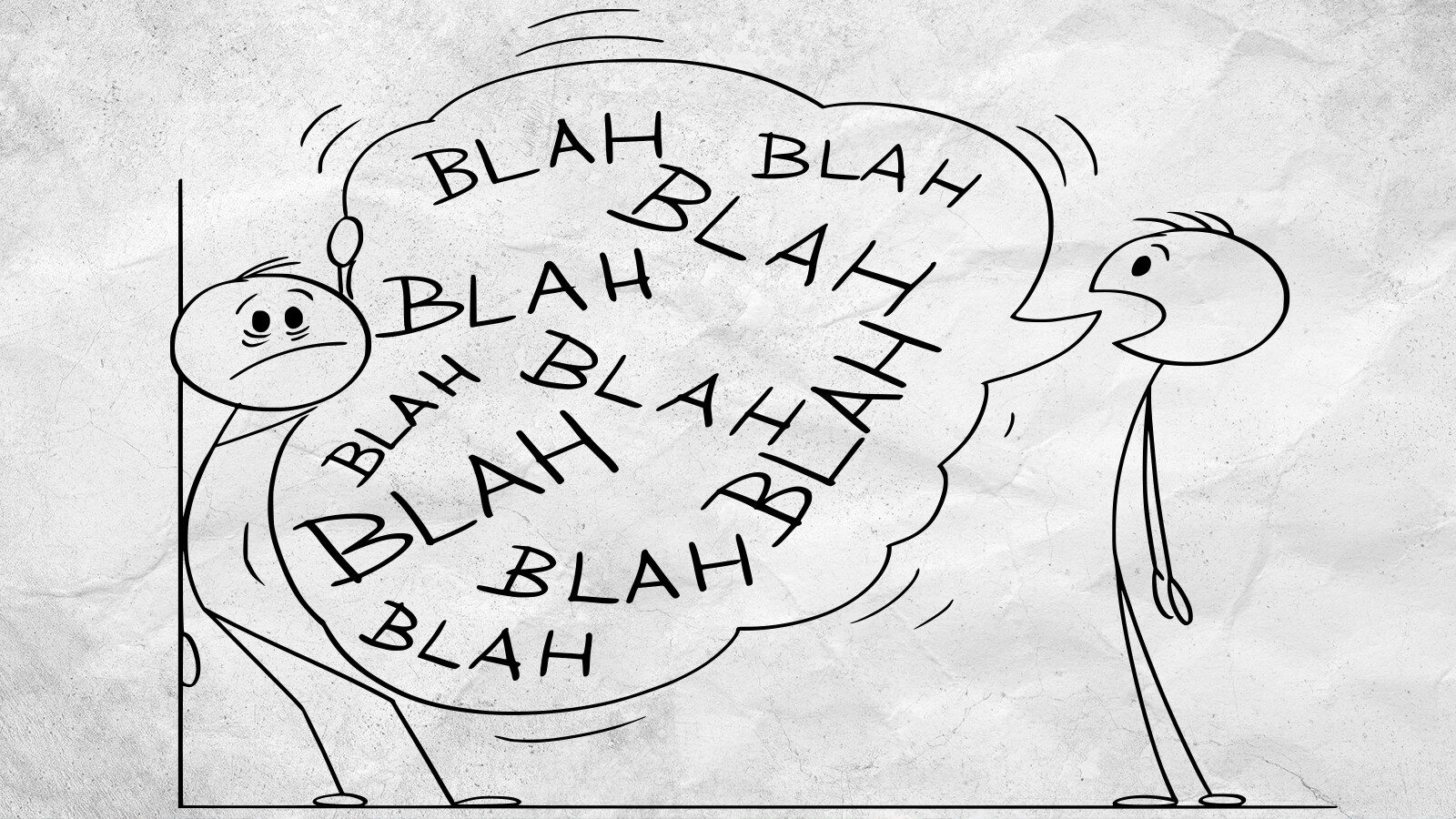She Talks Too Much So I Made Her Shut Up: A Candid Exploration Of Communication Dynamics
Let's be real for a moment, folks. We've all been there. You know, that point in life when someone talks so much that you feel like your ears are about to explode. It's not always easy to navigate these situations, but hey, we've all done things we're not proud of—like making someone shut up. Today, we're diving deep into this delicate yet relatable topic: "she talks too much so I made her shut up." Sounds dramatic? Well, buckle up because this ride is going to be real, raw, and filled with insights you didn't even know you needed.
Communication is the cornerstone of every relationship, whether it's personal or professional. But what happens when one person dominates the conversation? When does "talking too much" cross the line into something that affects the dynamics of a relationship? This article isn't just about shutting someone up—it's about understanding the complexities of human interaction and finding healthier ways to manage communication overload.
Our goal here isn't to condone or glorify any behavior. Instead, we're aiming to explore why people talk too much, how it impacts relationships, and most importantly, how to address the issue in a constructive manner. So grab your favorite drink, sit back, and let's dive into this together.
Read also:Liquid Death Box Art The Ultimate Guide To The Most Iconic Water Brand Packaging
Why Do People Talk Too Much?
Before we get into the nitty-gritty of making someone shut up, let's first understand why some people talk excessively. It's not always about being self-centered or inconsiderate. Sometimes, there are deeper psychological reasons at play. Here are a few common reasons:
- Seeking Validation: Some individuals talk a lot because they crave attention and validation from others.
- Overexcitement: When someone is passionate about a topic, they might find it hard to stop talking about it.
- Anxiety: Believe it or not, nervousness can sometimes lead to excessive talking as a way to fill awkward silences.
- Habitual Behavior: For some, talking a lot is simply a habit they've developed over time.
Understanding these reasons can help us approach the situation with empathy rather than frustration. It's not always about "shutting someone up"; sometimes, it's about helping them recognize their tendencies and encouraging healthier communication patterns.
How Does Excessive Talking Affect Relationships?
When one person dominates the conversation, it can lead to several negative consequences in relationships:
- Unequal Communication: The other person may feel unheard or undervalued.
- Increased Tension: Constant interruptions or one-sided conversations can create frustration and resentment.
- Loss of Interest: Over time, the listener may lose interest in engaging with the person who talks too much.
It's essential to recognize these effects and address them before they escalate into bigger issues. Communication is a two-way street, and both parties need to feel heard and respected.
What Happens When You Make Someone Shut Up?
Let's be honest—making someone shut up might feel satisfying in the moment, but it rarely solves the problem. In fact, it can often make things worse. Here's what might happen:
- Emotional Withdrawal: The person may feel hurt or rejected, leading to emotional distance.
- Conflict Escalation: Instead of resolving the issue, it might lead to arguments or resentment.
- Missed Opportunities: By shutting someone down, you might miss out on valuable insights or perspectives they could offer.
Instead of resorting to extreme measures, it's better to address the issue in a calm and respectful manner. But how exactly do you do that?
Read also:The Christmas Corner Bar A Festive Haven For Holiday Cheer
Healthy Ways to Address Excessive Talking
Now that we've explored the reasons and effects of excessive talking, let's talk about practical solutions. Here are a few strategies you can use:
- Set Boundaries: Politely let the person know when it's time to take a break from talking.
- Encourage Listening: Gently remind them that listening is just as important as speaking.
- Use Non-Verbal Cues: Sometimes, a simple gesture like raising your hand or nodding can signal that it's time to pause.
- Offer Constructive Feedback: Provide feedback in a way that doesn't come across as accusatory or judgmental.
These strategies can help create a more balanced and harmonious communication dynamic. Remember, the goal isn't to silence someone but to foster mutual respect and understanding.
When Should You Intervene?
Not every instance of excessive talking requires intervention. However, there are certain situations where stepping in is necessary:
- During Important Conversations: When the topic at hand requires equal participation from both parties.
- In Group Settings: When one person's dominance disrupts the flow of the conversation.
- When It Becomes Disruptive: If the talking starts affecting productivity or relationships.
Knowing when to intervene is key to maintaining healthy communication. Trust your instincts, but always approach the situation with care and consideration.
Real-Life Examples and Case Studies
Let's look at a few real-life examples to see how excessive talking has impacted relationships and how it was resolved:
Example 1: Sarah and Jake were colleagues who often worked on projects together. Sarah had a habit of talking non-stop during meetings, leaving little room for Jake to contribute. Jake decided to address the issue by setting clear boundaries and encouraging Sarah to listen more. Over time, their collaboration improved significantly.
Example 2: Lisa and Mark were friends who had known each other for years. Lisa's tendency to dominate conversations started to strain their friendship. Mark gently brought up the issue, and they both worked together to create a more balanced dynamic. Their friendship grew stronger as a result.
These examples show that with the right approach, even the most challenging communication issues can be resolved.
Data and Statistics on Communication Dynamics
Here are some interesting statistics to highlight the importance of balanced communication:
- According to a study by the University of California, people who talk excessively are often perceived as less trustworthy.
- A survey by Gallup found that employees who feel heard are 4.6 times more likely to be engaged at work.
- Research from Harvard Business Review suggests that effective communication is one of the top predictors of team success.
These statistics underscore the importance of addressing excessive talking and fostering healthy communication habits.
Expert Insights and Professional Advice
For expert insights, we spoke with Dr. Emily Carter, a renowned psychologist specializing in communication dynamics. She shared her thoughts on the topic:
"Excessive talking often stems from underlying emotional needs. It's crucial to address these needs in a compassionate manner rather than resorting to extreme measures like making someone shut up. Encouraging open and honest communication is key to resolving these issues."
Dr. Carter's advice emphasizes the importance of empathy and understanding in navigating communication challenges.
Practical Tips for Everyday Situations
Here are a few practical tips you can apply in everyday situations:
- Practice Active Listening: Show genuine interest in what the other person is saying.
- Use Timers: In group settings, assign specific time slots for each person to speak.
- Encourage Feedback: Create a safe space for everyone to share their thoughts and feelings.
These tips can help create a more inclusive and respectful communication environment.
Conclusion: Finding Balance in Communication
In conclusion, the phrase "she talks too much so I made her shut up" might capture a fleeting moment of frustration, but it's not a sustainable solution. Healthy communication requires effort, empathy, and understanding from both parties. By addressing the root causes of excessive talking and implementing practical strategies, we can create more balanced and fulfilling relationships.
We invite you to share your thoughts and experiences in the comments below. Have you ever dealt with a similar situation? How did you handle it? Your insights could help others navigate their own communication challenges.
And don't forget to explore our other articles for more tips and advice on building stronger relationships. Together, we can create a world where communication is a tool for connection, not conflict.
Table of Contents
- She Talks Too Much So I Made Her Shut Up: A Candid Exploration of Communication Dynamics
- Why Do People Talk Too Much?
- How Does Excessive Talking Affect Relationships?
- What Happens When You Make Someone Shut Up?
- Healthy Ways to Address Excessive Talking
- When Should You Intervene?
- Real-Life Examples and Case Studies
- Data and Statistics on Communication Dynamics
- Expert Insights and Professional Advice
- Practical Tips for Everyday Situations
- Conclusion: Finding Balance in Communication
Article Recommendations


